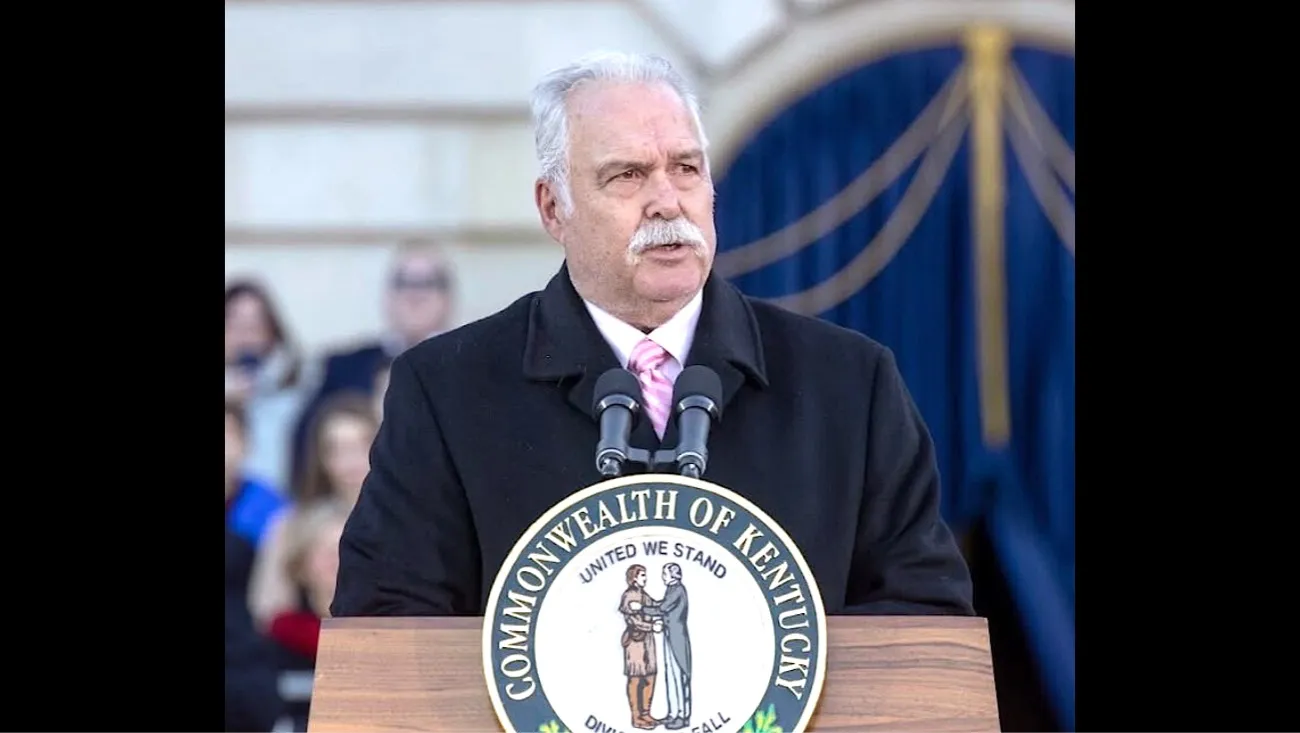Kentucky still has one of the nation’s highest adult smoking rates, but has fallen to fourth among the states, after many years of either ranking first or second. The rate for 2022, the last year for which a rate has been calculated, is 17.4%.
Asked why Kentucky might have seen a drop in its ranking, Amanda Fallin-Bennett, director of the Kentucky Center for Smokefree Policy, said it could be because Kentuckians have good access to treatment programs.
“Compared to other states, it does have pretty good access to tobacco-treatment services for most all Kentuckians,” she said, adding later, “We know, in general, that the majority of people who smoke cigarettes would like to quit. So we know that making cessation services available and accessible is a big help.”
Kentucky passed a law in 2017 to require all insurance policies sold in Kentucky to cover all smoking-cessation medications and counseling approved by the U.S. Food and Drug Administration. This also includes Medicaid, which covers one in three Kentuckians. The law also removed many of the barriers to such treatment, such as co-payments and limits on length of treatment.
Fallin-Bennett added that it’s important to consider that another reason that Kentucky’s smoking rate has dropped could be because of increases in the uses of alternative tobacco products, like vapes or heat-not-burn devices.
1 in 4 in Ky. smoked five years ago; now 1 in 6
With 17.4% of Kentucky adults reporting they smoke every day or some days, Kentucky ties with Mississippi for the fourth highest smoking rate in the nation, behind West Virginia (21%); Arkansas (18.7%); and Tennessee (18.5%). The figures are from the Behavioral Risk Factor Surveillance System, a continuing national survey by the Centers for Disease Control and Prevention.
Kentucky’s smoking rate has been on a steady decline since 2011, even though it was nearly 20% in 2021 and nearly 25% just five years ago, according to America’s Health Rankings, using CDC data.
This means that instead of more than one in four people smoking in Kentucky just five years ago and one in five in 2021, now just over one in six Kentucky adults are considered “current smokers.”
Fallin-Bennett said any decrease in smoking is to be celebrated: “Smoking is the leading cause of preventable death and disease and so anytime someone stops smoking, they are dramatically reducing their risk for cancer, heart disease, stroke, preterm birth, just a myriad of adverse health outcomes that are associated with smoking.”
Shannon Baker, advocacy director for the American Lung Association for Kentucky and Tennessee, said she had no data to analyze why Kentucky now ranks fourth among states instead of second, and cautioned that the focus should remain on the fact that Kentucky’s smoking rate is still among the worst in the nation.
“I can tell you that 17.4% of Kentucky adults smoke compared to the national average rate of 14%. So still, it’s still a terrible statistic, right? ... So I guess I would caution us to look at that, instead of how we rank,” she said.
Baker said any drop in the state’s smoking rate is great news, but noted that Kentucky continues to have the nation’s highest rates of lung cancer and lung-cancer deaths: “We still have miles to go.”
What next?
Asked what needs to happen to bring this rate down further, Fallin-Bennett said increasing tobacco taxes would help, as would more Kentucky counties and cities passing comprehensive smoke-free policies.
“So only 38% of Kentuckians are covered by comprehensive smoke-free policies where smoking is not allowed in restaurants, bars, and workplaces,” she said. “So that is an area that Kentucky continues to struggle with and that would likely further reduce smoking rates.”
Baker praised the efforts of the state’s Lung Cancer Screening Advisory Committee, but said more Kentuckians and providers need to be educated about the availability of low-dose CT screening for smokers and former smokers who qualify for it.
She said she thinks the committee is the first in the nation “that's really focusing on what we can do to increase the number of eligible individuals actually getting the low-dose CT scan done, and making making it more accessible and affordable statewide,” she said. “That’s a huge opportunity for us.”
A missed opportunity, she said, was in the recent legislative session, when legislators removed strict enforcement measures from House Bill 11, aimed at decreasing youth vaping. She said that the current laws that prohibit retailers from selling nicotine products to youth is “not effectively enforced.”
Baker added, “We need three things: We need licensing, and we need regular compliance checks, and we need penalties for violations that escalate for repeat violations all the way up to the point of suspension and revocation of your license for the worst actors, the scofflaw, and we know that they’re out there. And those things together represent a tremendous opportunity to address youth e-cigarette use and nicotine addiction, and we missed the boat.”
Gov. Andy Beshear signed HB 11 into law on April 5. It limits legal sale of vape products to those approved by the FDA. It will create a database of retailers that sell the products and set fines for retailers, manufacturers, and wholesalers who violate the law, but penalties for retailers are much less than in the bill’s original version.
--30--
Written by Melissa Patrick. Cross-posted from the KY Health News.







